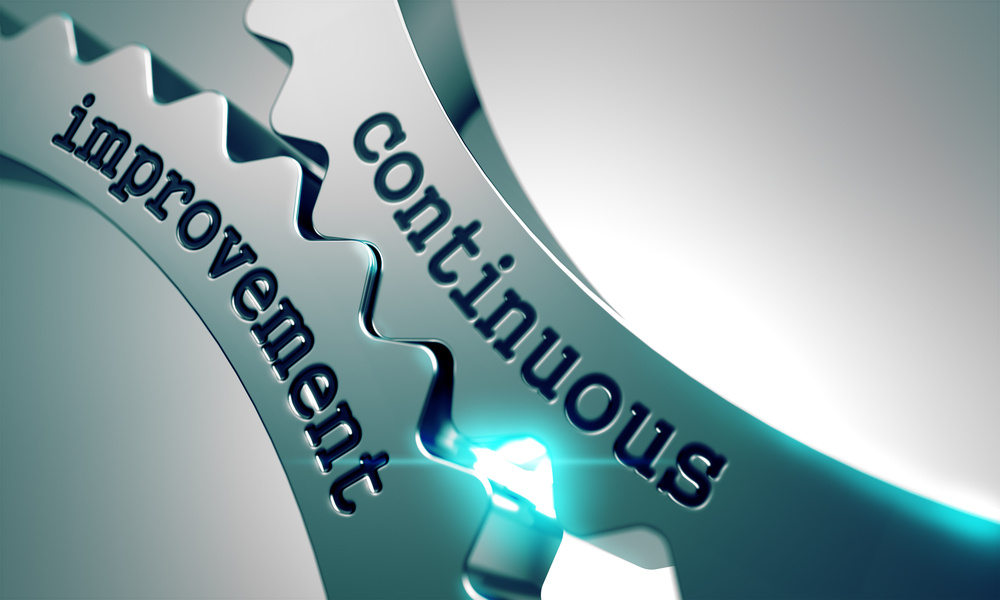Maintaining optimal inventory levels is essential for smooth operations and customer satisfaction. However, this approach can be more costly than businesses realize.
According to McKinsey, effective inventory optimization can reduce costs by up to 25%, highlighting the significant financial benefits of improved supply management. Yet, many businesses rely on outdated methods like manual tracking due to fears of stockouts and supply chain disruptions.
Are you worried about your business growth? Read more and learn why modernizing your approach is essential for achieving efficiency and cost-effectiveness in today's competitive global market.
The Problem: Inefficient Inventory Management
Consider a manufacturing company producing consumer electronics. This company faces erratic demand due to rapid technological advancements and changing consumer preferences. To mitigate the risk of stockouts, they overstock components, leading to high carrying costs and wasted resources.
Conversely, underestimating demand results in missed sales opportunities and customer dissatisfaction. Balancing inventory levels becomes a constant struggle, straining the company’s finances and operational efficiency.
Businesses across various industries deal with similar challenges, including:
- Excess stock tying up capital and increasing storage costs, with perishable goods potentially expiring and leading to waste.
- Running out of critical items, disrupting production and sales, and damaging customer trust.
- Predicting customer demand accurately is complex, often leading to overproduction or shortages.
- Natural disasters, geopolitical tensions, and other unexpected events can halt supply chains, causing delays and shortages.
- Traditional methods relying on historical data and simple forecasting models fall short in today's dynamic supply networks.
The Solution: Advanced Inventory Optimization
Inventory optimization leverages cutting-edge technologies and data analytics to transform supply management. Here’s how they solves common problems:
- Companies can use machine learning algorithms and big data analytics to accurately predict demand by analyzing historical sales data, market trends, and external factors.
- Advanced systems calculate optimal safety stock levels in real-time, adjusting to changing demand and supply conditions to minimize the risk of stockouts while avoiding excessive supplies.
- Inventory optimization tools automate the replenishment process, reducing manual errors and streamlining procurement to ensure timely restocking based on accurate demand forecasts.
- Advanced tools offer scenario planning capabilities, enabling businesses to develop contingency plans and maintain operations with minimal impact during disruptions.
- Modern solutions provide comprehensive visibility across the entire supply network, allowing companies to track supply levels, monitor supplier performance, and identify bottlenecks for more efficient and responsive supply chain management.
What Are the Strategies for Optimization?
Enhance your supply chain with targeted strategies designed to streamline operations. Here's how to leverage advanced technology and data-driven insights:
- Adopt Just-In-Time (JIT) Inventory: Reduce waste and carrying costs by aligning production schedules closely with demand forecasts.
- Utilize Vendor-Managed Inventory (VMI): Partner with suppliers to manage inventory levels, ensuring stock availability while minimizing excess.
- Implement Cross-Docking: Streamline distribution by transferring goods directly from inbound to outbound transportation with minimal storage time.
- Leverage Multi-Echelon Inventory Optimization (MEIO): Optimize supply levels across multiple stages in the supply chain to balance costs and service levels.
How to Reduce Costs and Improve Order Fulfillment Efficiency
Implementing lean practices, optimizing logistics routes, and leveraging technology for real-time insights are key strategies. Achieving cost reduction and enhancing order fulfillment efficiency requires strategic approaches:
- Centralized Inventory Management: Consolidate inventory management to improve control, reduce redundancies, and achieve economies of scale.
- Automated Warehousing: Invest in automated storage and retrieval systems (AS/RS) to speed up order processing and reduce labor costs.
- Real-Time Inventory Tracking: Use IoT devices and RFID technology to monitor inventory in real-time, reducing errors and improving accuracy.
Understanding How Technology Can Streamline Inventory Management
Explore the transformative potential of technology in inventory management. Here's how these technologies can revolutionize your practices:
- Cloud-Based Solutions: Cloud-based systems provide real-time data access, improved collaboration, scalable resources, and cost savings on IT infrastructure.
- Blockchain Technology: Implement blockchain for enhanced transparency, traceability, and security in transactions, reducing fraud and improving data accuracy.
- Artificial Intelligence and Machine Learning: Use AI and ML to analyze large datasets, uncover insights, automate decision-making processes, and predict demand more accurately.
Case Study: An Inventory Optimization Success Story
Consider the case of a global fashion retailer that implemented an advanced inventory optimization solution. Facing seasonal demand fluctuations and a diverse product range, the retailer struggled with high costs and frequent stockouts. By adopting a data-driven approach, the retailer achieved the following results:
- 16% Reduction In Costs: Optimized stock levels led to significant cost savings.
- 12% Increase in Sales: Improved product availability, enhanced customer satisfaction, and boosted sales.
- Enhanced Agility: The retailer could quickly adapt to market changes and launch new collections without the risk of overstocking.
This transformation underscores the potential of inventory optimization to revolutionize supply chain management.
Incorporate Advanced Inventory Optimization with Visigistics
Effective inventory management is essential for reducing costs and increasing profits. Advanced optimization ensures the right products are available at the right time, minimizing waste and boosting customer satisfaction.
At Visigistics, we provide solutions to help improve supply chains, such as nearshoring, optimizing inventory, and streamlining processes using industrial robotics. Our team also specializes in US-Mexico cross-border logistics for smooth operations.
Are you ready to transform your supply management and boost your business? Contact us for expert solutions.
Frequently Asked Questions:
Q: What is inventory optimization and why is it important for supply chain management?
A: Inventory optimization involves using techniques and software to manage and improve the efficiency of your inventory levels. It is crucial for supply chain management as it helps in reducing excess inventory, avoiding stockouts, improving demand forecasting, and ultimately optimizing the use of capital and resources.
Q: How can inventory optimization techniques help in reducing inventory levels?
A: By leveraging inventory optimization techniques such as demand forecasting, supply chain planning, and multi-echelon inventory optimization, businesses can better manage their inventory levels, minimize excess stock, and achieve a leaner and more efficient supply chain.
Q: What are the benefits of implementing inventory optimization in a business?
A: Implementing inventory optimization can lead to reduced carrying costs, improved customer service levels, enhanced forecast accuracy, increased inventory turnover, better supply chain visibility, and overall cost savings for the business.
Q: What is the role of inventory optimization software in inventory management?
A: Inventory optimization software automates and streamlines the inventory planning process by analyzing historical data, forecasting demand, setting optimal inventory levels, and providing real-time visibility into inventory metrics. It helps businesses make informed decisions and optimize their inventory effectively.
Q: How can businesses achieve inventory optimization best practices?
A: Businesses can achieve inventory optimization best practices by implementing robust inventory management processes, leveraging advanced software tools, improving demand forecasting accuracy, adopting a multi-echelon inventory optimization approach, and continuously monitoring and adjusting inventory levels based on data-driven insights.
Q: What are the different types of inventory that can be optimized using inventory optimization techniques?
A: Businesses can optimize various types of inventory including raw materials, work-in-progress inventory, finished goods, spare parts, and safety stock. By applying inventory optimization techniques to these different inventory types, businesses can improve overall operational efficiency and performance.
Q: How does inventory optimization contribute to supply chain efficiency and performance?
A: Inventory optimization plays a critical role in supply chain efficiency by ensuring the right inventory levels are maintained at the right locations and at the right time. This leads to reduced lead times, lower costs, improved customer service, better inventory turnover, and overall supply chain resilience.
Q: How can Visigistics help with inventory optimization in my supply chain?
A: Visigistics uses advanced inventory optimization techniques to enhance your supply chain efficiency. By leveraging inventory optimization software, Visigistics can accurately predict demand, reduce excess inventory, and ensure timely restocking. Discover how inventory optimization with Visigistics can lead to significant cost savings and improved customer satisfaction.
Q: What makes inventory optimization software essential for effective inventory management?
A: Inventory optimization software is crucial for effective inventory management as it automates demand forecasting, sets optimal inventory levels, and provides real-time visibility. Effective inventory optimization through software minimizes manual errors and helps businesses maintain the right stock levels. Discover how inventory optimization software can transform your inventory management practices.
Q: How does effective inventory optimization improve supply chain performance?
A: Effective inventory optimization improves supply chain performance by ensuring the right inventory levels are maintained across the network. It reduces lead times, lowers costs, and enhances customer service. Discover how inventory optimization with Visigistics can streamline your supply chain and boost overall efficiency.
Q: What are the key benefits of using inventory optimization software from Visigistics?
A: Visigistics' inventory optimization software offers accurate demand forecasting, real-time inventory tracking, and automated replenishment. This leads to reduced carrying costs, improved inventory turnover, and better supply chain visibility. Discover how inventory optimization software from Visigistics can drive operational excellence and cost-effectiveness.
Q: How does Visigistics approach effective inventory optimization for different types of inventory?
A: Visigistics applies effective inventory optimization techniques to various types of inventory, including raw materials, work-in-progress, and finished goods. By using data-driven insights, Visigistics ensures optimal stock levels, minimizes waste, and improves overall efficiency. Discover how inventory optimization with Visigistics can optimize every aspect of your inventory management.
Q: Can Visigistics help with inventory optimization during supply chain disruptions?
A: Yes, Visigistics uses advanced scenario planning and data analysis to manage inventory during supply chain disruptions. Effective inventory optimization techniques help maintain operations with minimal impact, ensuring continuous supply and customer satisfaction. Discover how inventory optimization with Visigistics can make your supply chain resilient to disruptions.
Q: What role does inventory optimization play in reducing supply chain costs?
A: Inventory optimization plays a vital role in reducing supply chain costs by minimizing excess stock, reducing carrying costs, and optimizing procurement processes. Effective inventory optimization leads to better use of resources and capital. Discover how inventory optimization with Visigistics can lead to substantial cost savings for your business.
Q: How can effective inventory optimization with Visigistics enhance customer satisfaction?
A: Effective inventory optimization ensures that the right products are available at the right time, reducing the risk of stockouts and improving delivery times. This leads to higher customer satisfaction and loyalty. Discover how inventory optimization with Visigistics can enhance your customer experience and drive business growth.





